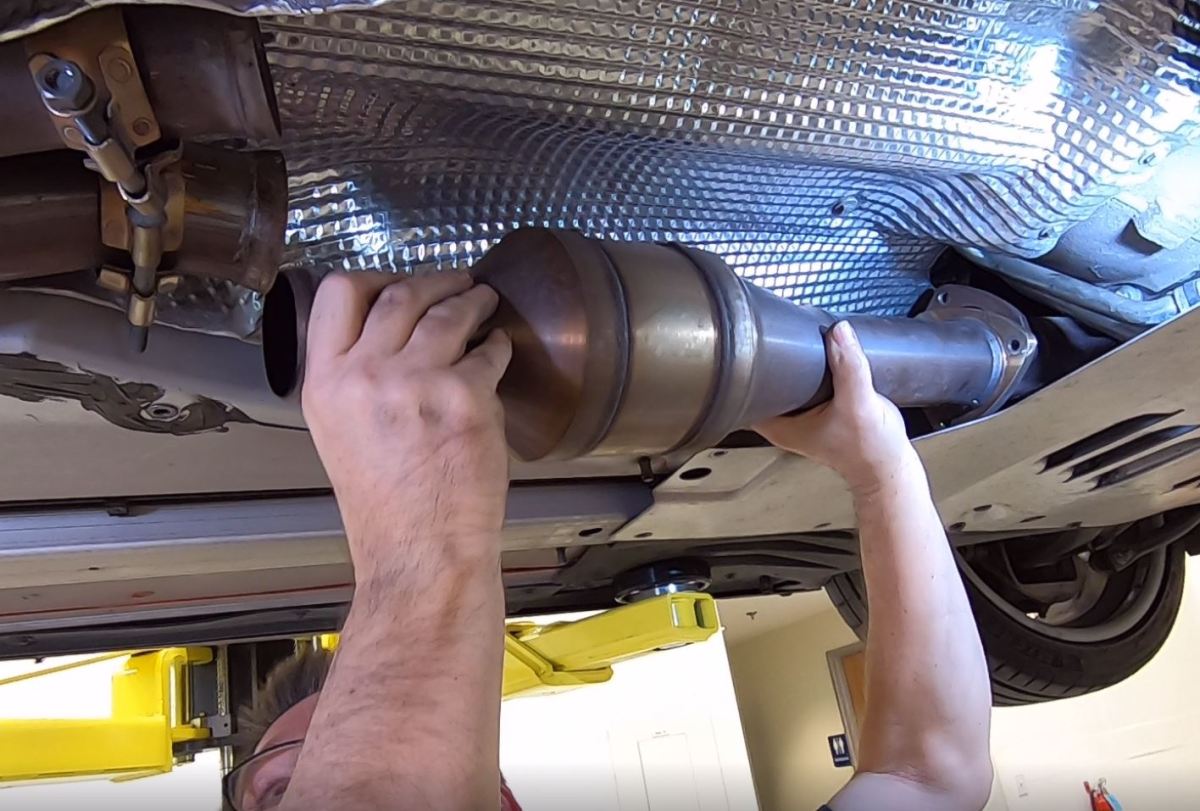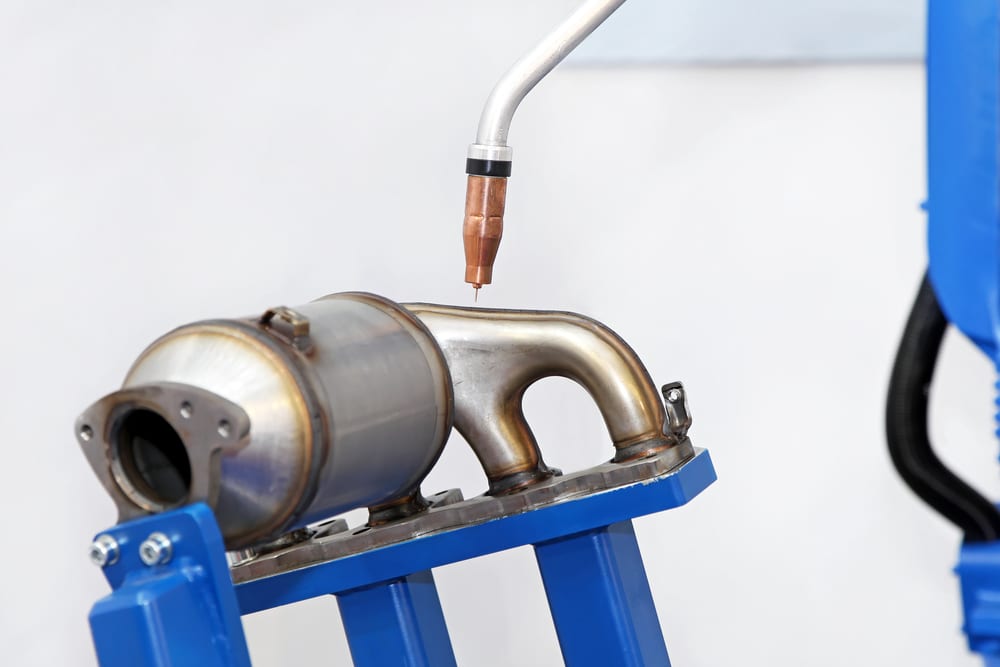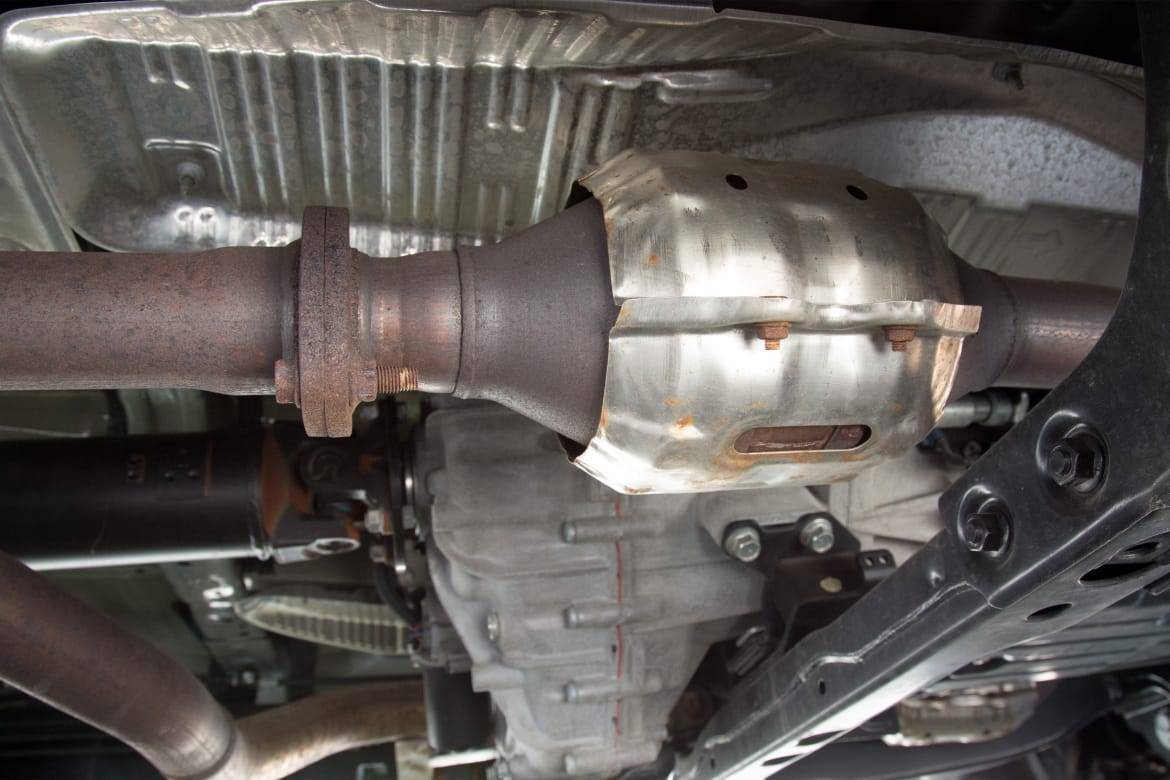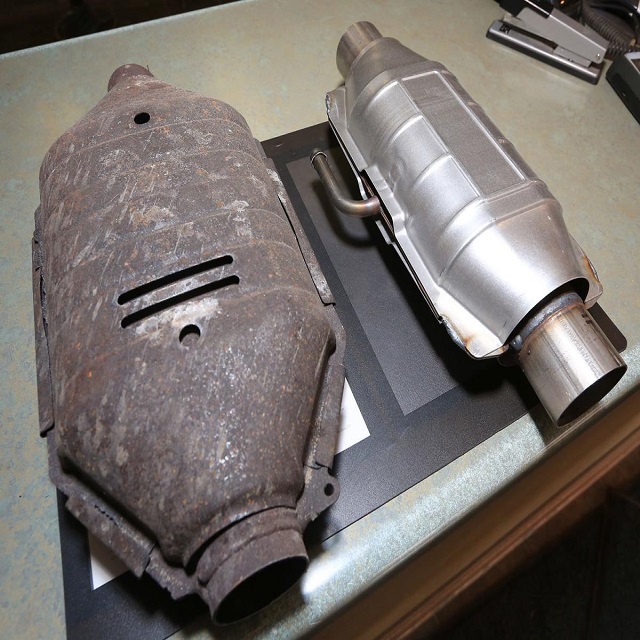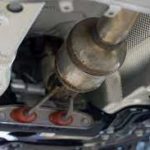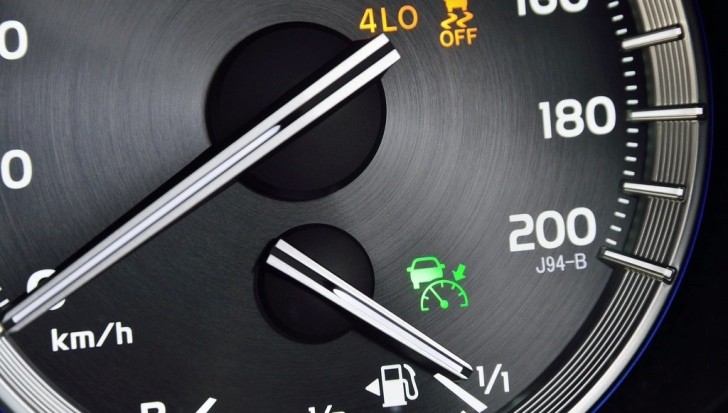Today, we are going to consider driving with a bad catalytic converter, all you should know. Before we go into this, we are going to consider what a catalytic converter is , the functions and many other important information.
What’s a Catalytic Converter?
A catalytic converter is an exhaust emission control device that catalyzes a redox reaction to transform hazardous gases and pollutants in exhaust gas from an internal combustion engine into less dangerous pollutants. Catalytic converters are most commonly found in internal combustion engines that run on gasoline or diesel, including lean-burn engines, as well as kerosene heaters and stoves.
Catalytic converters are most typically used in automotive exhaust systems, although they can also be found in electrical generators, forklifts, mining equipment, trucks, buses, locomotives, motorbikes, and ships. They’re even used to reduce pollutants on some wood burners. This is frequently in response to government regulation, either directly related to the environment or through health and safety restrictions.
Read also: How To Repair Or Replace a Catalytic Converter
Signs Of a Faulty Catalytic Converter
If your automobile shows any of these signs then you should know that your Catalytic converter has developed fault and it’s time to take it to a mechanic.
Check Engine Light
The presence of a check engine light can be one of the first symptoms that your catalytic converter is deteriorating. However, in order to adequately determine whether the problem is due to the catalytic converter, a diagnosis will be required.
Decreased Gas Mileage
A drop in gas mileage is a common consequence of catalytic converter failure. This is because if your catalytic converter becomes blocked, exhaust from your car’s engine will become trapped. A failed catalytic converter could be the cause of a significant rise in your car’s gas usage over a short period of time.
Decreased or Poor Performance
The exhaust build-up in your car can severely limit performance if your converter is clogged. A car with a blocked catalytic converter may feel as though it has no acceleration, even when the gas pedal is depressed, or it may even fail to start.
Rattling Noises
Your catalytic converter is made up of microscopic honeycomb-shaped components that, if destroyed, might make a rattling sound. If your catalytic converter is damaged, the rattling should be loudest when the car first starts and increase louder over time. If you hear a rattling noise along with any of the other symptoms listed below, it’s likely that your catalytic converter is to blame.
Driving With a Bad Catalytic Converter
If your automobile is exhibiting indications of a damaged catalytic converter, such as engine misfiring, loss of power when accelerating, or fuel vapor, you may be wondering if driving with a bad catalytic converter is safe and how far you can drive with it.
It’s not too risky to drive with a faulty catalytic converter. You can still drive your automobile normally if certain minor components of your catalytic converter are plugged. You’ll notice that the catalytic converter’s performance has deteriorated. If the catalytic converter is completely blocked, you will be unable to drive your vehicle. It may get totally fused directly or over time in some cases, and it will need to be replaced right away.
A bad catalytic converter can burn through overtime
If your car engine is running or burning oil too much, the inner fiber of your catalytic converter may be burned through. If you continue to drive as quickly as you like, you will most likely notice a smell and some smoke.
The majority of catalytic converter issues have no impact on your vehicle’s performance. Avoid driving your car if you have to cope with a fully plugged catalytic converter. If you find smog coming from your vehicle, you should get professional assistance right away.
Catalytic Converter Theft
Catalytic converters are devices that are installed in car exhaust systems to minimize the amount of harmful gases that are released. Thieves frequently target them because they contain valuable metals and can be removed in under a minute.
Catalytic converter theft is most common in parking lots, although it can happen anywhere. The converters could then be sold at scrapyards, online, or sent out of the country. Catalytic converter theft is particularly common in hybrid vehicles since its metals are more precious, but it can happen to any vehicle.
Catalytic Converter Theft Prevention
Despite the fact that catalytic converter theft is on the rise, there are precautions you can take to safeguard your vehicle. To protect your catalytic converter, consult your car dealer about locks or guards that have been certified by the vehicle manufacturer and tested to Sold Secure Gold standards.
Alternatively, make sure your vehicle is parked in a garage overnight, or park it in a secure enclosure if you have a business vehicle. If this isn’t possible, park in a well-lit, well-overlooked area, and try to park such that potential thieves can’t readily reach the converter. Vehicles that are parked high above the ground are especially vulnerable.
You should also register your converter and label it with a forensic marker to make it more difficult for thieves to steal.
Is Catalytic Converter Theft Covered By Insurance?
It depends on your insurance policy, but if the theft is covered, you’ll need to think about the excess you’ll have to pay. If the claim exceeds the value of your car, the insurance company will write it off. If you are able to make a claim on your insurance, keep in mind that your premiums will almost certainly rise as a result.
How Much Does It Cost To Replace a Stolen Catalytic Converter?
An original manufacturer converter will be more expensive than a generic type, so if this happens to you, check around for the best deal. However, in addition to the cost of repairing the converter, you may be required to repair any damage to your vehicle that occurred as a result of the theft. In certain circumstances, especially on older cars, the repair will be more expensive than the vehicle itself. The average cost of a claim, according to car insurer Admiral, is £1,500.
What Cars Are Targeted For Catalytic Converter Theft?
Any vehicle equipped with a catalytic converter can be targeted, however some vehicles are more frequently targeted than others. Because hybrids are partly powered by electricity, their converters are normally in better shape than those found in non-hybrid vehicles. As a result, they are more valuable. The older Toyota Prius, Toyota Auris, Honda Jazz, and Lexus RX are among the hybrid cars that are frequently targeted for catalytic converter theft.
Cars with a high ground clearance, such as vans and 4x4s, are also targeted since they make entrance simpler. Diesel cars’ DPFs (diesel particulate filters) are sometimes stolen as well.
Toyota Prius Catalytic Converter Theft
Toyota Prius owners must be especially cautious when parking their vehicles these days. Thefts of Prius catalytic converters have swept across North America, with owners bearing the brunt of the financial burden.
When it comes to EVs, these hybrid vehicles were once the must-have car. However, due to the risk of being targeted by thieves, many may be hesitant to purchase a Prius. While catalytic converter theft is on the rise across all manufacturers and models, police say the Toyota Prius is now the most targeted vehicle for catalytic converter theft.
Theft of catalytic converters from a Toyota Prius, like most car-related crimes, can be profitable. Catalytic converter prices are high because precious metals are utilized to create chemical reactions. Catalytic converter theft has been progressively increasing in recent years, and it shows no indications of slowing down.
As a hybrid, the Toyota Prius must be as ecologically friendly as possible. As a result, the Prius has among of the greatest catalytic converters available for commercial cars. The converters in hybrid cars are primarily targeted because they corrode significantly less. The more valuable the precious metal coating remains, the more money thieves can make from illegal trading.
Rhodium is widely employed in hybrid catalytic converters, and its price has risen dramatically in recent years, exceeding $14,000 per ounce. It’s simple to see why stealing catalytic converters would be appealing to someone looking for a quick cash.
Unfortunately for Prius owners, replacing a stolen catalytic converter is not inexpensive. Finding and installing a new catalytic converter might cost anywhere from $2,700 to $4,100. The converter must not only be replaced, but the harm caused by sawing it out must also be corrected.
Conclusion
Hope you enjoyed reading this article on; Driving with a bad catalytic converter. As promised we have talked about other aspects of catalytic converter, like the signs of a faulty catalytic converter, catalytic converter theft etc. Follow the instructions on this guide if you encounter any of these Cat related problems.

